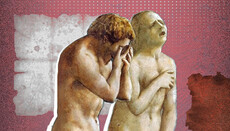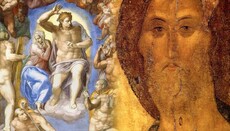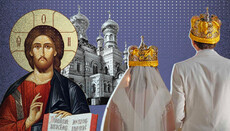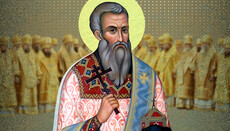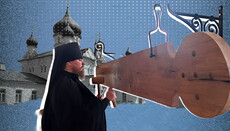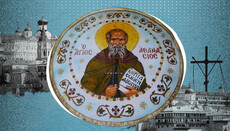If the bishop is an atheist
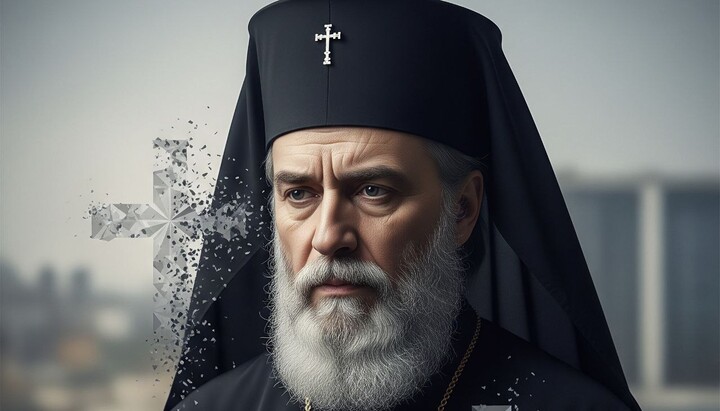
When a monk is ordained as a bishop, he accepts a way of life that makes his personal salvation far more difficult than it was before.
Today we will continue the conversation about the Church that we began earlier. In our last talk, I spoke about the fact that all Christians are a royal priesthood. But this, of course, does not deny the existence of sacred hierarchy in the Church. The fact of the ordination of bishops and presbyters is absolutely clear in the New Testament writings. And the entire subsequent history of the Church bears witness to the vital importance of the practice of ordination.
It is a mistake to imagine that the early Christian community existed in a state of blessed anarchy. A Church without leaders would have become a disorderly mob. So now our conversation will turn to church hierarchy and the sacrament of ordination.
If we read the New Testament carefully, we will easily see that election to ministry in the Church was not, as a rule, a matter of human choice alone. We read in the Acts of the Apostles: “The Holy Spirit said, ‘Set apart for me Barnabas and Saul for the work to which I have called them.’” And only after that did the apostles, “after fasting and praying, lay their hands on them” (Acts 13:2–3).
When the apostles themselves did not have clear guidance on a choice, they cast lots. This is what they did when choosing between Joseph and Matthias to replace the traitor Judas. The apostles did not vote or evaluate the candidates’ personal qualities. They cast lots while praying: “You, Lord, who know the hearts of all, show which of these two you have chosen to take the place in this ministry” (Acts 1:24–25).
Whoever was chosen by the Holy Spirit was ordained. Ordination was the visible sign of such election. The Church community would then acknowledge this choice by proclaiming: “Axios!” (worthy).
So, we see that a candidate for ordination in the early Church went through three successive stages:
- Selection for service by the Holy Spirit.
- The act of ordination itself, in which the Holy Spirit bestowed His gracious gifts on the one chosen.
- The Church’s recognition of the fact of ordination.
All three of these stages held vital importance in the ancient Church.
What do we have today? Out of those three, only one remains – the act of ordination itself.
Election to a church office has been appropriated by a synod of bishops or by the authority of a single bishop. The Church people have long been excluded from any real role in selecting candidates for ordination.
Does this mean that the modern church hierarchy is displeasing to God? Of course not. The Holy Spirit has acted in the Church and continues to act. By His providence He selects a person for ministry, appoints them to this or that degree of church hierarchy. The Lord Himself leads His chosen ones to accept holy orders. True, He acts less visibly than during the charismatic period of Church history – but His providence remains unchanged.
Can we then conclude that every minister ordained is a chosen one of God, called to service by the Holy Spirit? Unfortunately, no. Church history is full of examples of ordinations that were plainly displeasing to God. And not only individual ordinations – even collegial decisions of bishops, at times equal in size to Ecumenical Councils, have later been condemned by the mind of the Church as displeasing to God, with those gatherings labeled “Robber Councils.” And how many synod decisions, church court rulings, and even councils have condemned saints and righteous people!
Clearly it would be wrong to equate the decision of a body of bishops with the will of the Holy Spirit – even when a resolution presumptuously adds the phrase: “It seemed good to the Holy Spirit and to us.”
As for ordination, we know countless examples of simony – where ordinations were bought for money. Or how should we view the so-called “Komsomol recruitments” to seminaries, when the Communist Party, seeking to destroy the Church from within, forcibly sent young party members there as punishment? Some of them, over time, truly came to faith through their studies and ministry. Others simply descended into drunkenness and degradation.
But even within the church environment itself there were plenty of cases of what you might call “godless” ordinations.
Here’s one example. In 2000, Aleksey Tarasov, a student at the St. Petersburg Theological Academy, was ordained. According to those who knew him well, he was a malicious, underhanded person. Precisely for this reason he was greatly favored by the academy’s authorities, since he regularly informed on his classmates. When Aleksey was led to the altar for ordination during the liturgy, the entire church cried out in unison: “Anaxios!” (unworthy).
According to all the canons of church law, the bishop had no right to ordain him. But instead the presiding bishop stepped out before the students and declared that he would not imitate Pontius Pilate and listen to the cries of the crowd. In other words, he likened Aleksey, whom he was about to ordain, to Jesus Christ Himself – and the protesting seminarians to the mob demanding Christ’s crucifixion. From that day on, the nickname “Anaxios” stuck to Aleksey forever.
Notably, such a public disgrace and his peers’ rejection did not disturb Aleksey at all. Unsurprisingly, in time he became Ignatiy, Bishop of Kostomuksha and Kem. However, his unworthy life eventually became public knowledge, leading not only to the loss of his see but also to his prohibition from ministry and being stripped of the right to wear episcopal vestments.
What amazed me most was that such an anti-canonical ordination took place not in some remote diocese, conducted by a provincial bishop, but in one of the country’s most respected theological schools, in front of educated students who fully understood the absurdity and anti-canonical nature of what was happening.
So let us pose a question about this specific case, one I have heard asked many times: How should we view ordinations like that of Aleksey Tarasov?
Or let’s broaden the question: If there is no will of God in a bishop’s ordination, but instead the operation of corrupt human will, is such a candidate truly a bishop?
In other words: is his status legitimate? Is the sacrament itself valid? Does he possess episcopal grace? If not, what about the sacraments he subsequently performs? Are the ordinations he conducts of priests valid?
And if he does in fact receive episcopal grace at his ordination, does that mean the Holy Spirit is forced to obey human will – forced to confer grace in the sacrament of ordination on these self-appointed candidates whom He did not choose?
Answering that last question, we must say:
No one in all creation can compel God to do anything against His will.
Never can the Lord’s will be subject to human will or any other will. God always bestows His gifts only on those whom He Himself has chosen. Where there is no divine will, no synod of bishops – however authoritative – can impart the gifts of the Holy Spirit to a candidate.
Thus, these godless ordinands not only lack holy orders but, given the state of their souls, quite possibly are no longer even members of the Church. Though outwardly, in the Church’s horizontal, visible dimension, they will wear the vestments assigned to them, perform rites, and imagine themselves bishops, believing they truly are such.
But what if such a graceless bishop ordains a priest whose own calling aligns with the will of God? Would that ordination be valid?
I believe it would. Here I’ll cite the opinion of Protopresbyter Nicholas Afanasiev, who in his monumental work The Church of the Holy Spirit writes:
“God bestows the gifts of the Holy Spirit not on those chosen by bishops but on those whom He Himself chooses. A bishop has the grace to perform the sacrament of ordination, but that does not mean he controls the gifts of the Holy Spirit. Even less does it mean that the bishop transmits his own grace to the clergy he ordains...
Such a view shows a deep misunderstanding of the sacrament of ordination. The bishop by himself can transmit nothing of his own grace to anyone. Grace is not some thing that can be handed over from one person to another. The bishop does not possess a treasury of grace to distribute at will. Grace is the living gift of the living Holy Spirit abiding in the Church. It is God Himself who appoints people to special ministries in the Church.”
Of course, we must understand that the clergyman is not just an instrument in God’s hands through whom He acts in the world.
Undoubtedly, the charism of the priesthood, like other gifts of the Holy Spirit, exists in the Church. But in my view, this charism is not static but dynamic: it can grow as the priest himself grows spiritually, or it can diminish – even to the point of vanishing altogether if he lives a godless life.
Therefore, the moral state of the clergy plays an enormous role.
“Divine grace, which always heals the sick and completes what is lacking,” acts freely in the Church, but the spirit of the priesthood, personal piety, and the gifts received in ordination all work together synergistically.
As St. John Chrysostom teaches, the soul of the priest should be brighter than the rays of the sun. He is called to be the reflection of Christ on earth, His spiritual embodiment.
We must realize that the balance of forces between clergy who carry the Spirit of Christ and those in whom dwells the spirit of this world determines the qualitative state of every diocese and of the Local Church as a whole.
Politicians have always tried to use the Church for their own ends.
For the “powers that be,” the Church is nothing but a public institution. The more worldly clergy there are, the more the Church becomes populated with political commissars in cassocks, the more political propaganda and fawning before the world and its rulers will there be.
When it comes to ordination, there is a natural question that arises from what we read in Scripture:
How can we know the will of God?
Where is the will of the Holy Spirit present in a candidate’s ordination – and where is it absent?
At first glance, this may seem a difficult question. But in reality, it is not. If you look carefully at the life and motivations of any particular clergyman, you can see where God’s will was truly at work and where it was merely human pride, vanity, and ambition. Even an ordinary Christian can discern this in himself without too much difficulty. It is enough simply to be honest with oneself.
Regarding the modern episcopate, in my view today’s bishops are forced to combine within themselves two fundamentally different ways of life.
On one hand, the bishop is a monk. And monasticism means withdrawal from the world’s bustle and a life of prayerful solitude. The word monk comes from the Greek monos, meaning “alone.”
On the other hand, the bishop is a church manager and administrator who is right at the center of bustle and worldly cares.
Balancing these two ways of life is no easy task.
Chronologically, the monk “comes into being” first – only afterward does he receive episcopal obedience as a form of service to the Church. But if the monk has truly matured and been born in such a person, then accepting episcopal ministry means nothing other than voluntarily agreeing to make one’s own salvation far more difficult for the good of the Church.
With episcopal ordination, the monk accepts a way of life that makes his personal salvation far harder than it was before. To save his soul, he must strive at all costs to preserve the monastic spirit within himself. Otherwise, his own spiritual life will become a catastrophe.
Episcopal service in this sense is a heavy cross.
But if a man gladly abandons the monastic way of life for the sake of an ecclesiastical career and material benefit, this is clear evidence that not only has the monk in him died – the Christian has died as well.
To a lesser extent, the same can be said of the priesthood. By becoming a presbyter, a Christian makes his path to salvation more difficult than it would be if he remained an ordinary member of the Church. He will be held to a far stricter account.
A cleric can enter the Kingdom of God only as a cleric – or not at all. The path of the ordinary layperson is no longer open to him.
The Church’s visible, earthly, horizontal structure with its hierarchy, ranks, and titles does not perfectly align with its spiritual, invisible vertical reality.
I fully agree with the words of Elder Simon (Bezkrovny) who says that no one in the Church – from the humblest parishioner to the Patriarch – is exactly what they think they are. Who we truly are is known only to the grace of God and to those to whom He reveals it.
